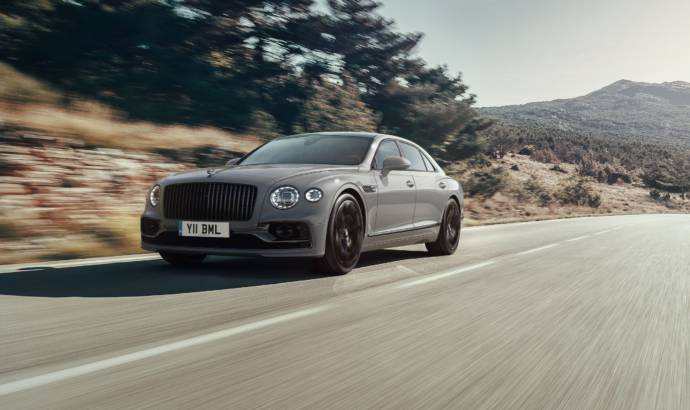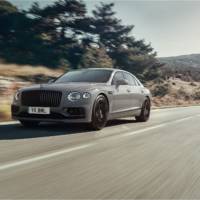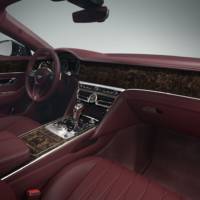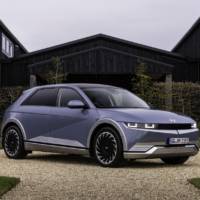Even if the Flying Spur is one of the most luxurious cars on the market, Bentley wants to update the limousine from time-to-time.
City Specification consolidates an array of optional content and becomes part of the standard vehicle specification at 22 Model Year. These features include; Traffic sign recognition, hands free boot opening, extended safeguard features, top view camera, welcome lighting and automatic dimming mirrors, as well as the Air Ioniser. This adds a greater depth of features to one of the most luxurious cabins of any grand tourer.
The Flying Spur benefits from the application of state-of-the-art technology to deliver the ultimate, in-cabin experience. Noise, vibration and harshness – known in the automotive industry as NVH – have been painstakingly eliminated, helping to ensure the Flying Spur is not only the world’s finest, luxury four-door Grand Tourer, but also offers phenomenal acoustic performance.
In the cabin, new features include the option of open-pore veneer, which is finished with an ultra-thin matt lacquer solely for protection. Liquid Amber, Dark Burr Walnut and Tamo Ash veneers are all available in an open-pore finish.
Selected from only the very best, most figured stock available, open-pore veneer is painted with just three ultra-thin layers of lacquer, together totalling only 0.1 mm in thickness. By comparison, Bentley’s High Gloss lacquer coating is 0.5 mm thick and has a glossy, smooth finish. Each layer is applied by hand and sanded between applications, ensuring the lacquer sticks to the natural grooves of the wood. The resulting finish is wax-like and perfectly highlights the authentic, natural colour and texture of the wood species.
This technique ensures Bentley customers can actually feel the texture of the wood. The variation in colour and grain of different cuts of open-pore veneer mean that each is also slightly different – offering a truly unique Bentley interior.
To create a cabin environment fit for ‘the best luxury sedan in the world’, one offering unrivalled levels of comfort and refinement, advanced virtual design processes have been utilised in the testing and production cycles of the third generation Flying Spur. These cutting-edge techniques are ultimately more sustainable, dramatically reducing the need to manufacture physical parts.
The challenging job of pinpointing unwanted cabin noise relied on Virtual Prototyping through development partner ESI Group, allowing Flying Spur designers to use digital mock-ups that helped identify NVH before building a physical version of the car. The finely-tuned process enabled acoustic tests for any airborne sounds filtering in to the cabin to be completed, as well as any impact from the structure itself, such as tyre noise.
Through the use of virtual prototyping, a weight optimisation programme for the Flying Spur could be undertaken on 40 different components. This ensured the correct soundproofing materials were deployed in the right locations around the vehicle, so passengers can enjoy the quietest cabin experience possible for work or relaxation on the move.





